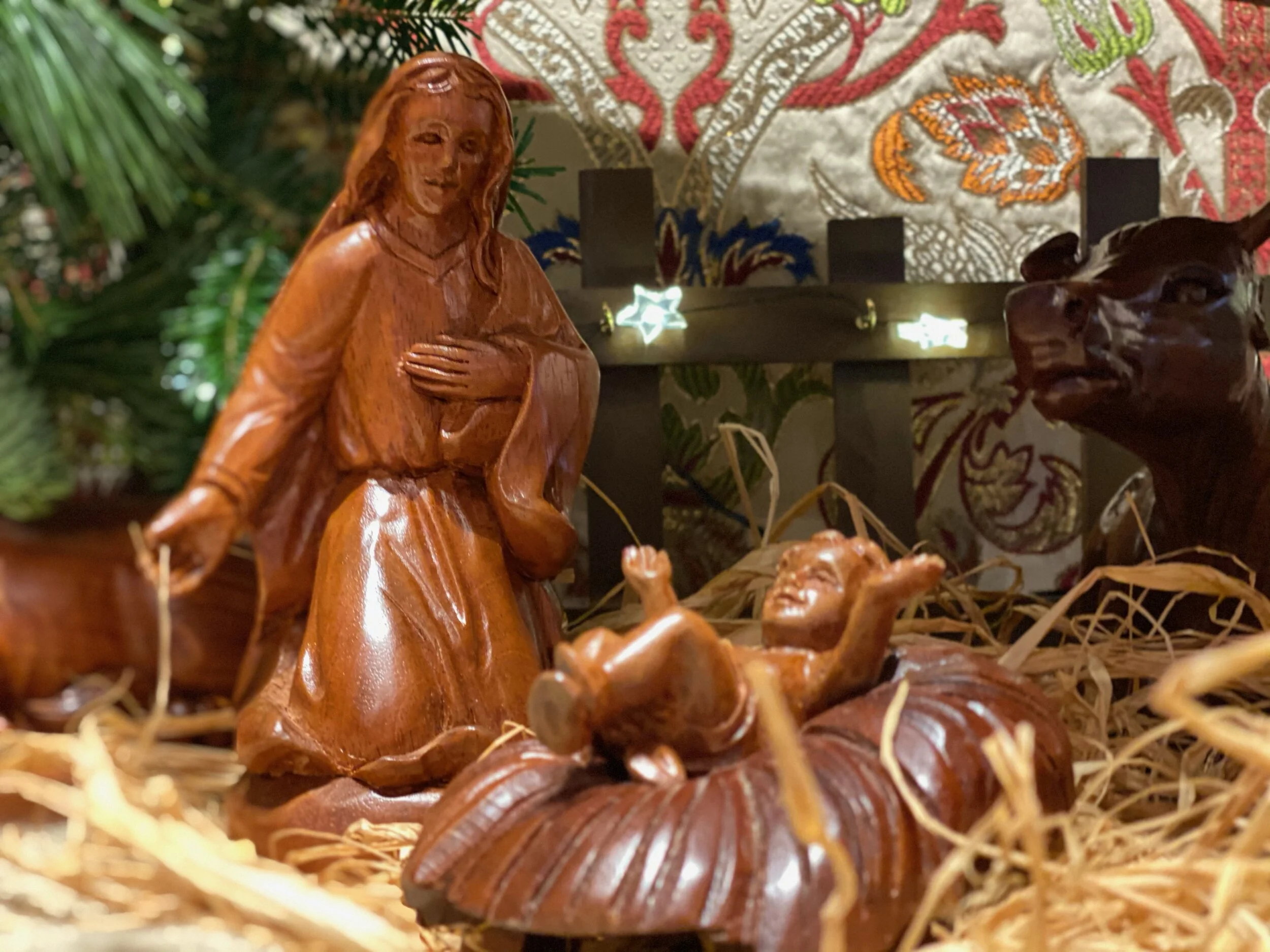The Consolations of Christmas: 1 Thessalonians 4:13-18
Creche before the Altar, St Peter’s Cathedral, St Petersburg, FL 2020
“But we do not want you to be uninformed, brothers and sisters, about those who have died, so that you may not grieve as others do who have no hope. For since we believe that Jesus died and rose again, even so, through Jesus, God will bring with him those who have died. For this we declare to you by the word of the Lord, that we who are alive, who are left until the coming of the Lord, will by no means precede those who have died. For the Lord himself, with a cry of command, with the archangel’s call and with the sound of God’s trumpet, will descend from heaven, and the dead in Christ will rise first. Then we who are alive, who are left, will be caught up in the clouds together with them to meet the Lord in the air; and so we will be with the Lord forever. Therefore encourage one another with these words.”
Paul is the great consoler of his little flock in Thessalonica—we spent much of our Advent study of 1 Thessalonians discussing how Paul the pastor wrote to the anxious and sad group who were missing both Paul, and who were concerned about the death of some of their fellows—new converts who they probably expected to be part of the circle of the community when Christ returns.
We also are a people who are looking for the consolations of God in our lives—we are in the middle of a pandemic and the nation and the world are experiencing disruption and death on a massive scale. And we each have our own more ordinary, but none the less deeply felt pains and woes that come from the vicissitudes of life.
We have moved from the season of Advent to the season of Christmas—and the apocalyptic Christian hope that Paul has laid out in the language of archangels and trumpets—at least for a season—focuses on the manger scene in Bethlehem. The first Advent of God in Christ took the form of this small child. The 19th century Episcopal Bishop of Massachusetts, Phillips Brooks, in the hymn he wrote, “O Little Town of Bethlehem” says of that little village scene, “the hopes and fears of all the years are met in thee.”
The coming of Christ is our consolation—in the season of Christmas we mark it at the manger even as we await its final consummation in whatever form that may take. Paul says we will meet the Lord and be with him all together (4:17)—and I believe that. For many of us the season of Christmas can be so bittersweet—like the Thessalonians we may be wondering about those who are no longer here—what about those who have died—and thoughts of our own mortality and of those closest to us may rise up in us as well.
We can contemplate the manger itself, and the infant Christ as a kind of sacrament-in-story. The scriptural narrative of Christmas, and the consolation of a new baby—the obvious affection and faithfulness of the holy family in all the adversity that will unfold for them in the story of the slaughter of the innocents and the flight into Egypt and settling in Nazareth (Matthew 2:13-23)—all these are signs of God to us of what he will unfold for us who have been joined to the story of redemption and hope in Christ.
We encourage one another through tough times with these words (4:18) because that was Paul’s direction to the Thessalonians and it is still good counsel for us.
